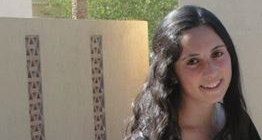Firehawk basketball teams making the most of longer practice season
November 8, 2012
As of Nov. 2, Shalhevet’s Boys Varsity Basketball Team had already played six games and won five. Its official season sponsored by the California Interscholastic Federation, or CIF, doesn’t start for two weeks, but since last year, Shalhevet’s Boys’ Varsity Basketball Team has been practicing and playing year round.
Though basketball is only a winter sport, athletes on the team want to practice during all three seasons.
“Practicing year-round gives us the preparation we need to go far into the season,” said sophomore Simcha Halpert, who started on the Varsity team last year. “Basketball isn’t just a sport you can play during the fall. You have to practice year round on your own to be good anyway.”
The team is currently practicing three times a week, for a total of six hours – two each on Sunday, Monday and Tuesday – even though the official season does not start until Nov. 20 and lasts until Feb. 8.
And the strategy seems to have worked. Last year the Firehawks won the Slam Jam Showcase tournament in Los Angeles, and gave their best ever performance at the Red Sarachek Tournament in New York. They also won the Beren tournament in Texas.
“It is necessary to play as much as we do because we lose so many days due to the holidays,” said senior Ari Wachtenheim. “We only practice three times a week when other teams are going five days or even more during the regular season.”
Ari also thinks that the extra time commitment does not prevent any athlete from partaking in other co-curriculars.
“I think it’s absolutely necessary to make it {practice} outside the regular season,” Ari said.
Not everyone thinks this is a great idea, however.
“Why should basketball have a longer season than any other sport?” said junior Kaili Finn, who plays on the girls soccer team. She believes that all sports require equal treatment from the school and time commitment from the players.
The girls’ basketball team is strictly assigned to the winter season, and neither baseball, soccer, volleyball or tennis teams at Shalhevet practice year-round.
But others said it should depend on the desires of the team.
“If the volleyball team decided that they wanted to start training for next year’s season now, they should be able to do it,” said sophomore Shana Chirki. “Just depends on the seriousness of the sport and the team.”
Some experts worry that year-round sports are more than students should handle, however. The Boiling Point interviewed Dr. Stephen A. Russo, assistant professor and director of Sports Psychology at Nova Southeast University.
“ As the demands on high school athletes to play year-round increases, so does the need for parents and coaches to be aware of the signs of burnout,” Dr. Russo said. “The symptoms aren’t always easy to recognize.”
Former Varsity captain Eitan Spitzer, ‘12, said the year-round work had definitely had improved the basketball team, though at a price.
“Practice year round further helped the team and myself grow — I felt more comfortable personally and as an older member I played with more confidence,” said Eitan.“It’s a huge time commitment and a block of your week that is devoted to only one thing.”
The boys’ basketball team plays in a CIF league called the Mulholland League with Westview School, Summit View West, LA Adventist Academy and Arshag Dickranian Armenian School.
“This year we have more games scheduled as well as different tournaments,” Mr. Schiff said. “We are not participating in the Houston nor Milken tournaments this year. However, we are participating in the Turning Point tournament, which looks to be a fun, competitive match-up for us.”
Other local prep schools such as Harvard-Westlake and Brentwood start practicing in November and end their seasons in February or March. They hold tryouts the last week in October unlike Shalhevet who held tryouts the first week of school.
In addition, Collin Jamerson, the Varsity coach, has his own outside, privately run league called Game Timers. During the off-season, the Shalhevet team plays in this league. CIF rules are somewhat unclear as to whether this is permitted, but school officials believe it’s fine.
“Non-CIF games are permitted, but a team cannot exceed 20 games in a season,” said Athletic Director Mr. Eli Schiff. A tournament during the regular season counts as two games toward that total, he said, and Shalhevet is being careful to stay under the limit.
Some believe that practicing year round might enhance the quality of team both on the court physically and off the court emotionally. With a dual curriculum at Shalhevet and an average students school hours lasting eight hours and 20 minutes on a regular day not including homework, burnout and stress symptoms are not uncommon – but some find stress relieved by sports.
Freshman basketball player Elon Gloublerman, who also played on his middle school team at Yeshivat Yavneh suggested limiting practice to once or twice a week during the off-season in order no not interfere with other co-curriculars.
But he added, “It would be a great opportunity for me to still practice year round , because basketball is so fun and being able to play and get better would be amazing.”
“Once the season is over we take a couple of weeks off, and there are leagues for high school students for other seasons,” Coach Collin said in an interview. “The CIF doesn’t let you wear school uniforms during that season, but there is no rule against playing.”
He added that the team does not practice as much as he would like during the off season, and because of the Jewish religion, the Firehawks cannot be as committed.
And at a certain point, success becomes its own reward.
“It is fair for basketball to have a longer season because basketball is prioritized in Shalhevet, ” said sophomore Tom Amzalag. “The team is more prestigious than any other sport in Shalhevet.”













